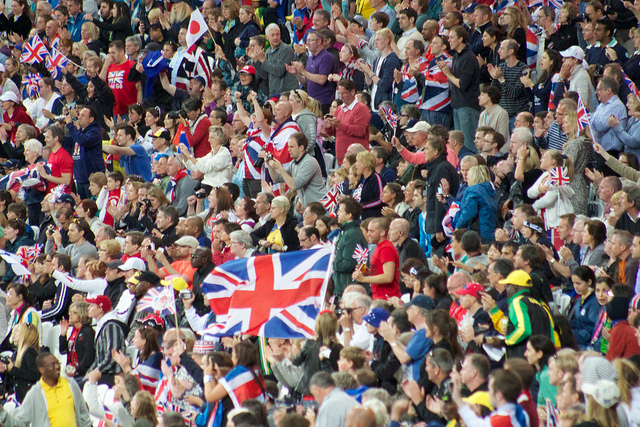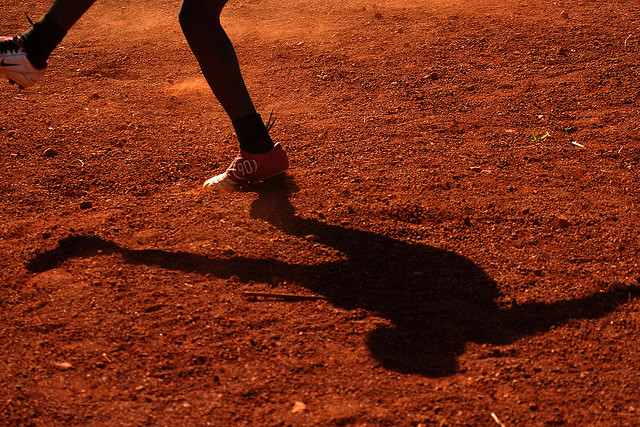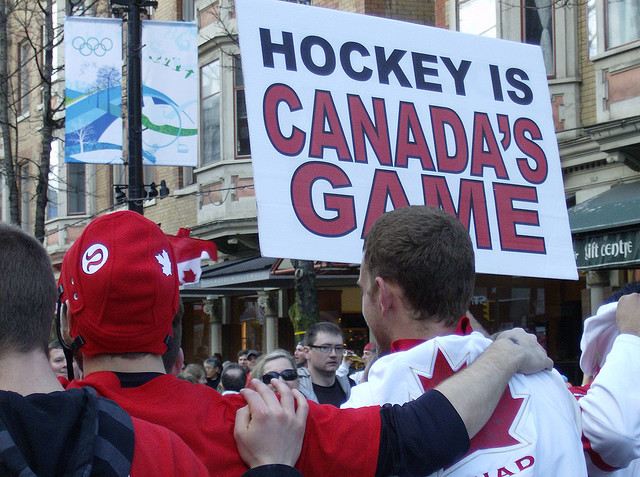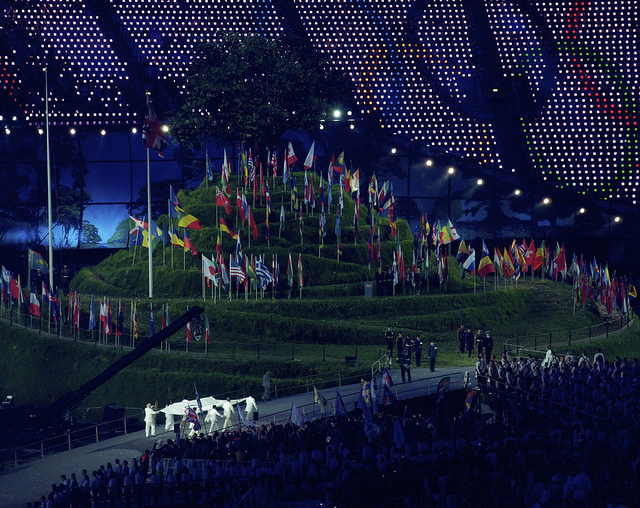As the Paralympics kick off in London tonight, SEN Journal: Online Exclusives is delighted to present our final exclusive article on the theme of nationalism, ethnicity and sport. Regular contributor Sonia Morland writes of her own experiences at the Olympic games earlier this summer, describing some of the differences in national crowds, and reflecting upon an unexpected source of national pride. Let us know what you think!
A lot has been said over the past few weeks about the revival of national pride in Britain, as our nation’s sportsmen claimed medal after medal at the Olympics. But that was not my experience of London 2012. I was working at Earls Court, where the volleyball was playing. For a British patriot, there was small comfort available there – neither the men’s nor women’s team managed to make it as far as the quarterfinals. Yet this did not stop me or my colleagues having a positive experience, as we all enjoyed watching the spectators from other countries, as they turned up to watch their nations compete in the volleyball. There was a certain enjoyment in watching nations live up to their stereotypes; I helped clean the stadium after every game and it was after the Russia vs. Poland match that we had to pick up the most empty alcohol bottles. I was especially interested by the varying efforts of different nations to showcase their national pride. Few Brits dressed up or brought flags along with them, whereas almost every Pole came entirely decked-out in the national colours of red and white. Long after the Polish team lost one match, the fans continued to sing the Polish national anthem and displayed an obvious reluctance to leave. This made me wonder whether the success of one’s national team is really an essential ingredient to one’s sense of national pride. At the volleyball, many fans simply relished the chance to display their patriotism and, when I spoke to a few, they confessed to never having shown an interest in volleyball prior to the game they had received tickets for.





